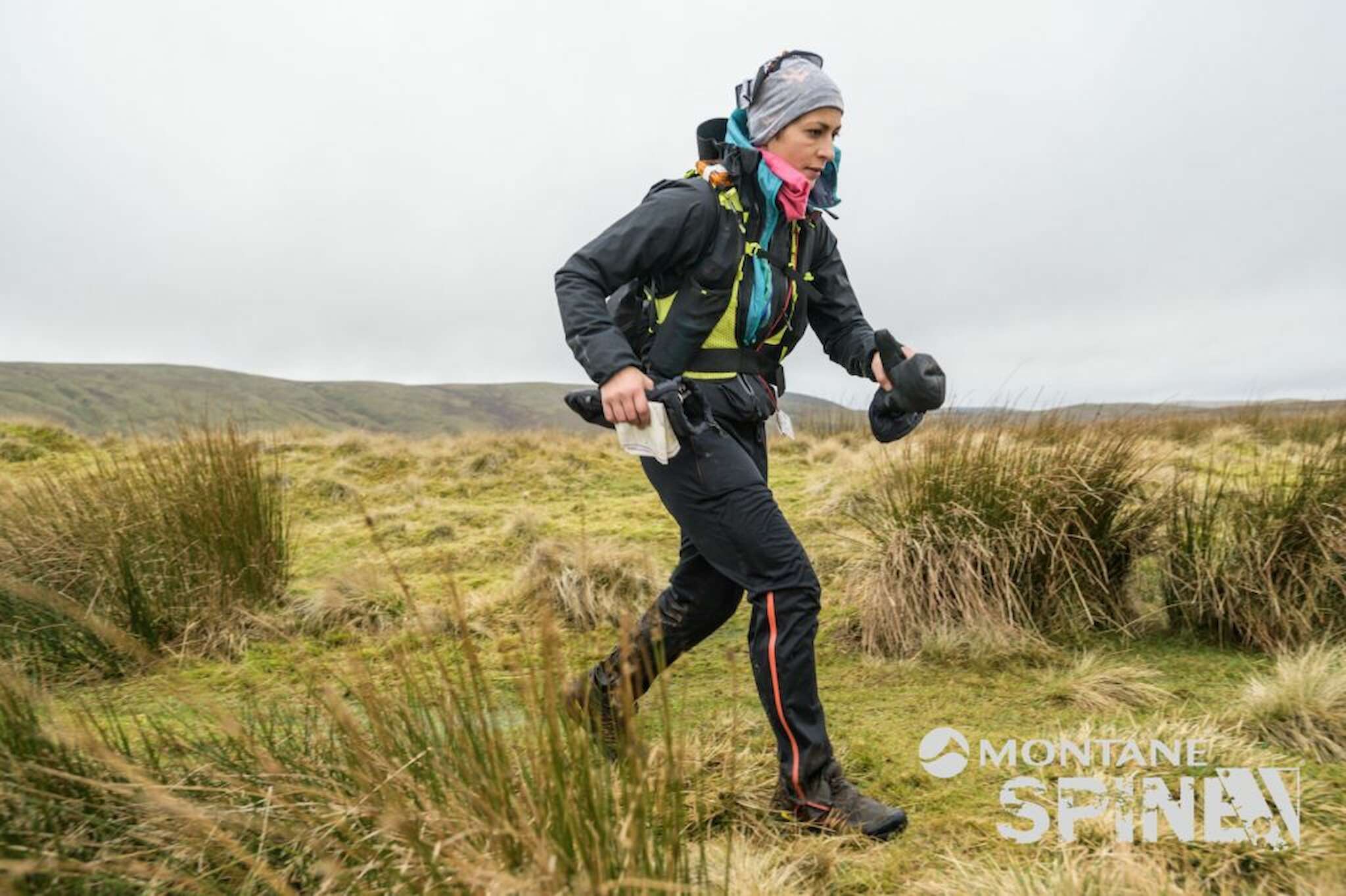The Spine Race
 Useful thoughts from Sabrina Verjee, winter & summer Spine Race winner.
Useful thoughts from Sabrina Verjee, winter & summer Spine Race winner.
The average speed on the Winter Spine is slow: mine less than 3km/hr! Training hard and fast is worthless, training long and slow with a weighted pack very valuable.
My total time in checkpoints throughout the entire race was 7 hours and 10 minutes – the fastest out of all the athletes. In order to do this you need to be very organised – you need to know exactly where everything is in your drop bag and to put everything back methodically. This requires training and discipline. One bag for used and wet kit – so dead batteries etc – you don’t want to accidentally take a used battery out on the hill.
You need to be well rehearsed in what is required when you get to the checkpoint in order to minimise “faff” time – to do this you need to be alert so sleep may be required. This varies from person to person. I have been adventure racing for over 10 years and I have had much practice at sleep deprivation, I know when I am on the limit and when I can push through and the steps I need to take to prevent me falling asleep on my feet, which is never a good idea when its cold and wet!
Kit needs to be tried and tested – I’ve been using mine for over 10 years so I know how it all works, still new things come along but they should be tested well before the race. I acquired a new Petzl Swift headtorch which is super lightweight and a promising replacement for the petzl Nao but I only managed to pick it up 4 weeks before the race so I did not have enough time to fully test it. How long does the battery last – how much less when it is very cold? I found the battery change a bit fiddly and I didn’t want to risk not being able to do this on the hill in the dark so I only used it for the first section of the race where I new I would only need the one battery as likely I would only run 2 – 3 hours in the dark for the final bit to Hebden Bridge. The Petzl Nao is brilliant batteries can last 12 hours with the reactive lighting so generally lasting a whole night and I am also very used to changing the batteries quickly, in the dark with gloves on.
The main drop bag is very important – I bought a special bag for this because it is long and large and opens all the way – Yukatana 120 litre.
Depending on the distance of your multi day event you can also download our Ultra Marathon Nutrition Guide or Trail Marathon Nutrition Plan
